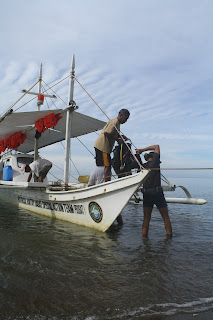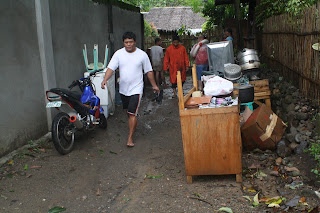A few months ago, I remember a local cable channel having
this letter writing contest for Rizal, with a tag line that went something
like, if Rizal was alive today, what would you like to write to him about? On the commemoration of our national hero’s
115th death anniversary, this is my letter to him (and please allow
me the liberty of writing in English for the sake of a broader audience).
Dear Rizal,
First of all, I would like to let you know that you have
always been my role model. You are
probably the most talented Gemini I know about, a genius in so many levels. Anybody who can be an ophthalmologist/surgeon,
linguist, engineer, poet, novelist, sculptor, taxonomist, farmer, painter, activist, and teacher at
various times in his life is indeed worthy of emulation. I often wonder how you did it all, considering that you did not seem to let your lovelife take a back seat.
You are indeed a Renaissance man, and would have been the poster child for multiple intelligence back in those days before the term was even coined. Most importantly,
you came back to the Philippines when you could have opted to stay in Europe
and enjoyed the European lifestyle. And you came back even if you knew you
would probably die for doing so—and that to me, just showed how much you really
loved your country.
We need more people of your calibre today, more heroes,
although of the everyday kind. I am sorry to tell you that the flame of
patriotism that once burned brightly in your heart and in your fellow
Katipuneros is mostly extinguished in today’s youth—with a few exceptions here
and there. A lot of people of my
generation are leaving our beloved motherland for greener shores abroad, never
to return. They who could have stayed and contributed a lot to nation-building
felt that they had no other choice but to leave in order to provide better
economic opportunities for their families. As a result, many children are growing up
without mothers or fathers. This is just one of the steep prices we had to pay
as a society. The former president of this country (she was
a very corrupt person, sadly) called our overseas Filipino workers as modern
day heroes, and although that is true in some sense, I feel that the real heroes
are the ones that stayed, the ones who sacrificed earning big bucks abroad so
that they could really help in nation building, and raise their children
themselves, and not just send money back home.
Recently, a strong typhoon caused a lot of deaths in Negros
Oriental and northern Mindanao, and several weeks after the tragedy, you could
see that the volunteer spirit is very much alive in quite a few of our countrymen. Common folks have come together to help out
those who are most in need, and you would have been very proud of them. They are
the ones who really go there and help where help is most needed—building
toilets for the relocation areas, tending to the wounded and the sick, help put
up shelters, and assist in the long term rehabilitation program. More than the
token donation, they are putting in the real work that needed to be done.
I do know a lot of people I look up to as everyday heroes,
and most of them are working towards saving the environment in their own
way. Some work tirelessly as Bantay
Dagat in protecting the marine environment, despite the bad pay and the death
threats from the big illegal fishers. Some educate out of school youth
tirelessly, giving them another chance for a better life. Some stayed in the country to work here as
professional educators or lawyers or community organizers when they could have
gone abroad and earned more and have a better life for themselves and their families.
And there are some who did go abroad, but came back to the country, and are now
in the thick of doing work towards sustainable development. They are my heroes.
I just wish that there would be more young people who could
be “infected” with your patriotism. More
young people who volunteer their time and talents to a worthy cause such as
planting trees, organizing youth camps, helping build homes for the homeless,
etc. More young people who decide that they would rather not earn big money,
but earn significant life experiences instead while they are young. More young
people who do not waste their youth getting stuck in a job they hate but which
pay for their extravagant, self-centered lifestyles. More young people who would
rather stay and do their part in building a better Philippines for the
generations to come.
As for myself, I can honestly tell you that I felt I have
stayed and done my part in nation-building, although I know I can do much more.
I still owe the Earth about a hundred
trees to be planted to offset for my very high recent carbon footprint. The
trees that we planted for my little daughter’s baptism last year are growing
well, and she is currently under potty training and should have a lesser carbon
footprint in a few months or so. I have also helped survey several potenrial new marine
protected areas this year, and hopefully, these areas will be declared legally
as MPAs by 2012.
If you ask me now what is my greatest contribution to
nation-building though, I would have to say that its raising my children to
love their country. Although their last names are Norwegian because their
father is one, and they have to learn to speak English for communication out of
necessity, they are, and will always be Filipinos. My son grew up with bedtime stories of
Carancal and Pilandok, and Hipon and Biya. He loves batwan sinigang and adobo,
and he knows that trees should not be cut and water should not be wasted. And although we have to leave the Philippines
for the northern climes very soon, like you, I will not stay long in Europe. I
know where my place in the world is, and it is here in this beautiful tropical
archipelago, the Pearl of the Orient.
Thank you, dear Rizal, for being such an inspiration to
me. Although fate did not allow you to
become a father, you have been a role model for me and many Filipinos, and I know you
will continue to be such for many generations to come.
Sincerely yours,
P
 |
| A painting of Rizal's execution at Bagumbayan (Luneta). This one is at the Fort Santiago shrine to Rizal. |
 |
| Triumph of Science Over Death. I am not sure if this is a replica... the details were pretty good. |
 |
| One of the original prints of the Noli Me Tangere? |
 |
| Capturing these buggers is hard! This is one of the few species he "discovered" for science. Cool :) |
 |
| Rizal was a small guy, and this was one of the overcoats he used in cold Europe... |
 |
| A replica of the original Mi Ultimo Adios that was placed inside a lamp and given to a friend (?) before he was executed... |
 |
| The dungeons at Fort Santiago where Rizal spent time before he was executed. It is a horrible, damp, stuffy place where a lof of other people also died. May their souls rest in peace. |
 |
| Idol! :) |
 4. You will get paid to dive (to survey fish, corals, etc.) AND travel. Doing this while you are young and energetic and penniless, such as in grad school, is perfect, because it will get harder and harder as time goes by.
4. You will get paid to dive (to survey fish, corals, etc.) AND travel. Doing this while you are young and energetic and penniless, such as in grad school, is perfect, because it will get harder and harder as time goes by. 8. You wiill become good friends with Statistics and Research. Your doctor friends will ask you to help them with their medical research later on. Then you can charge them for being their "Research Consultant" :)
8. You wiill become good friends with Statistics and Research. Your doctor friends will ask you to help them with their medical research later on. Then you can charge them for being their "Research Consultant" :)



























